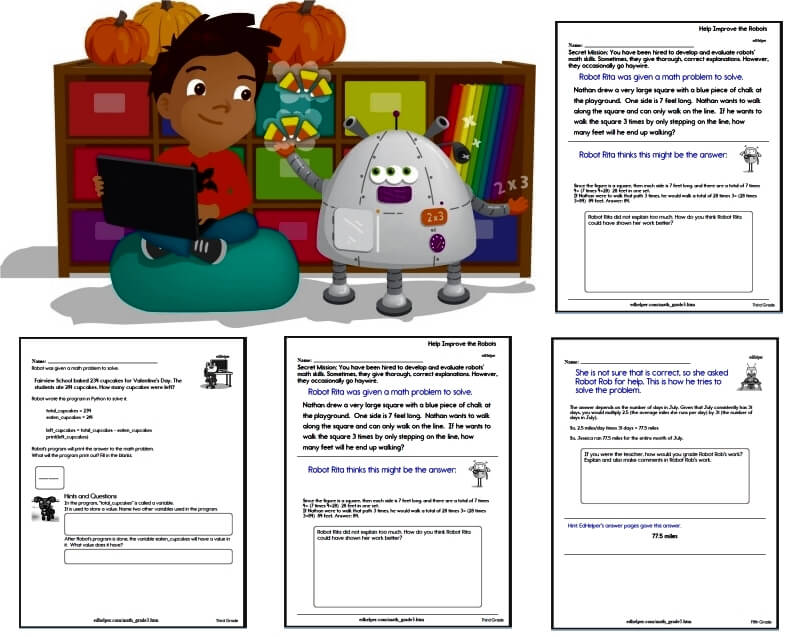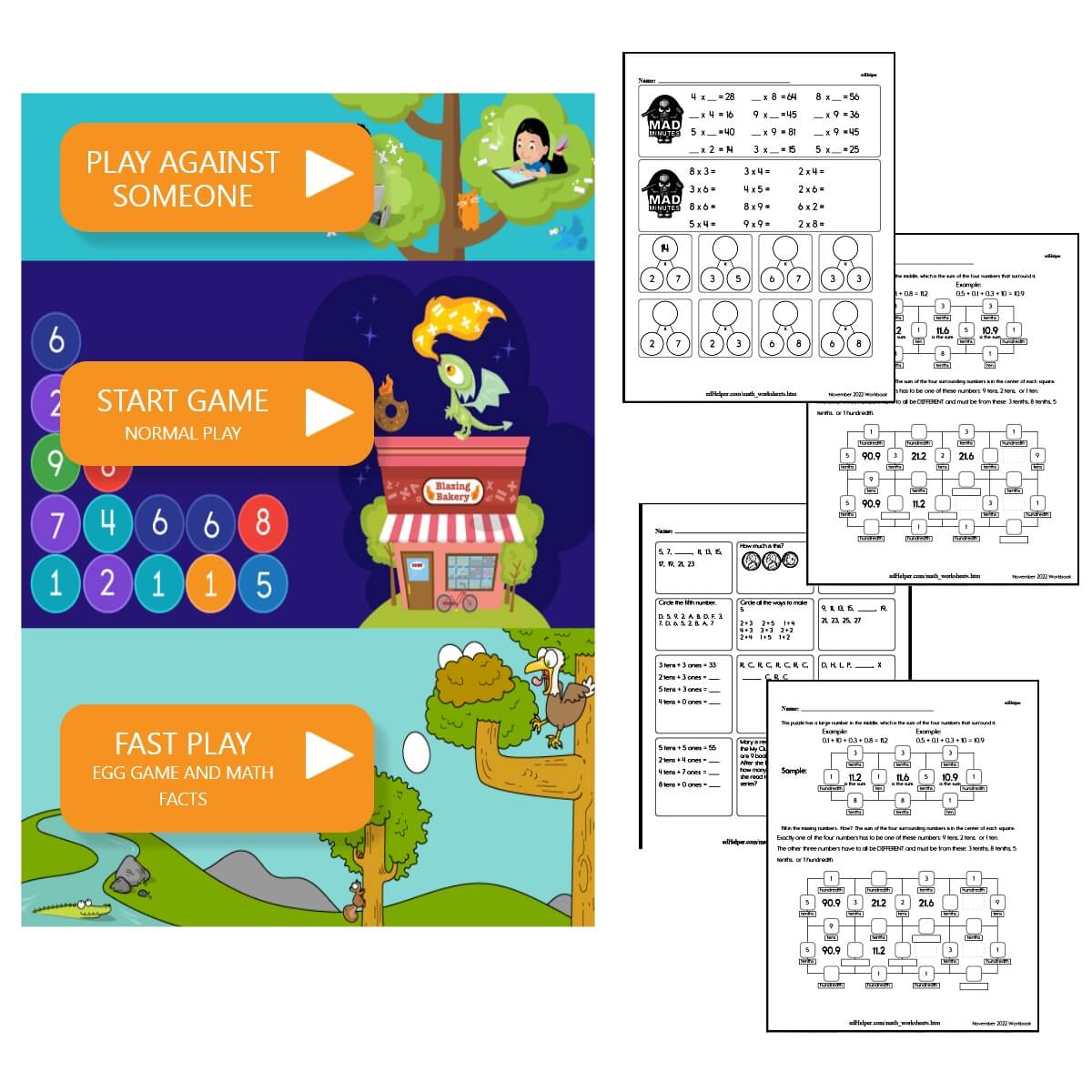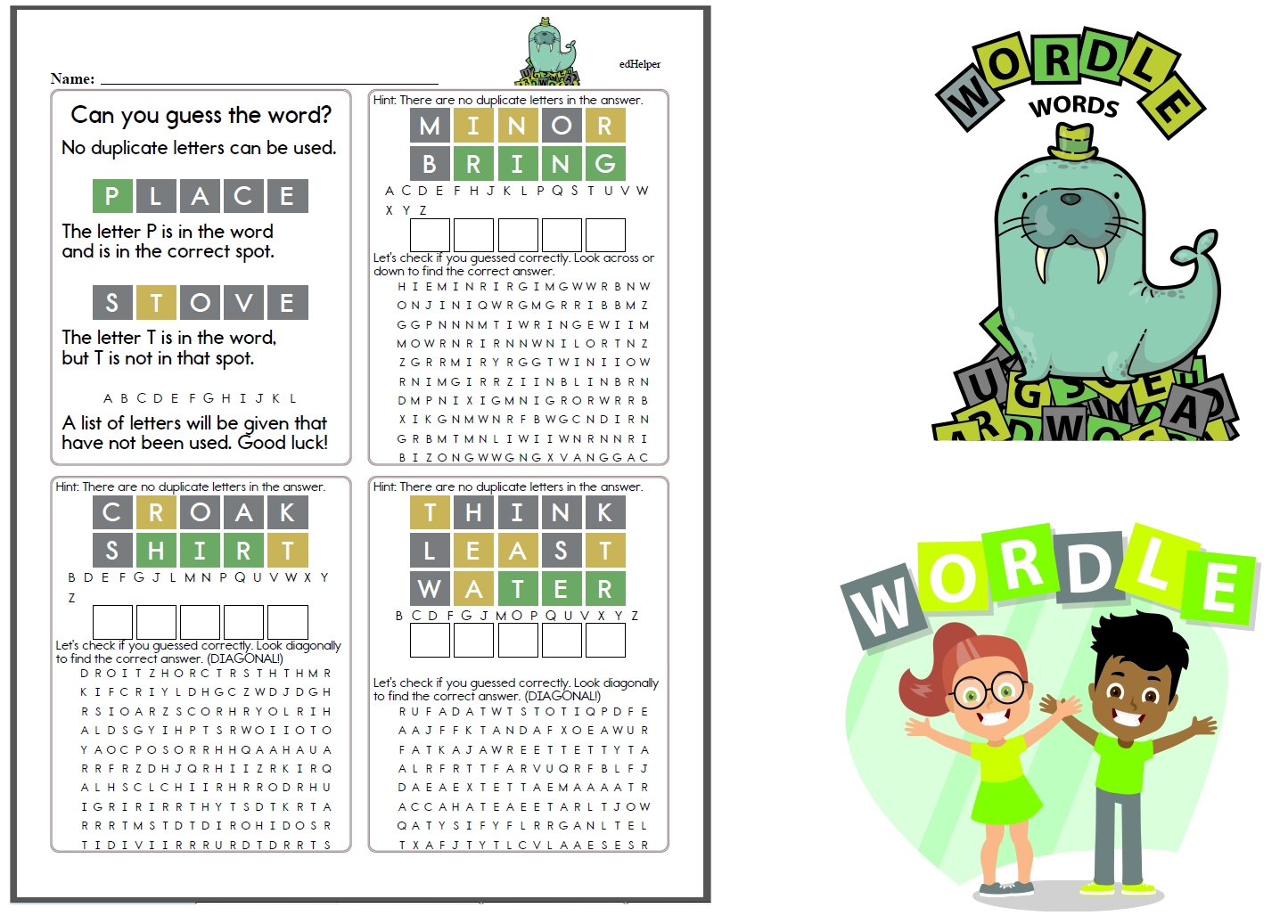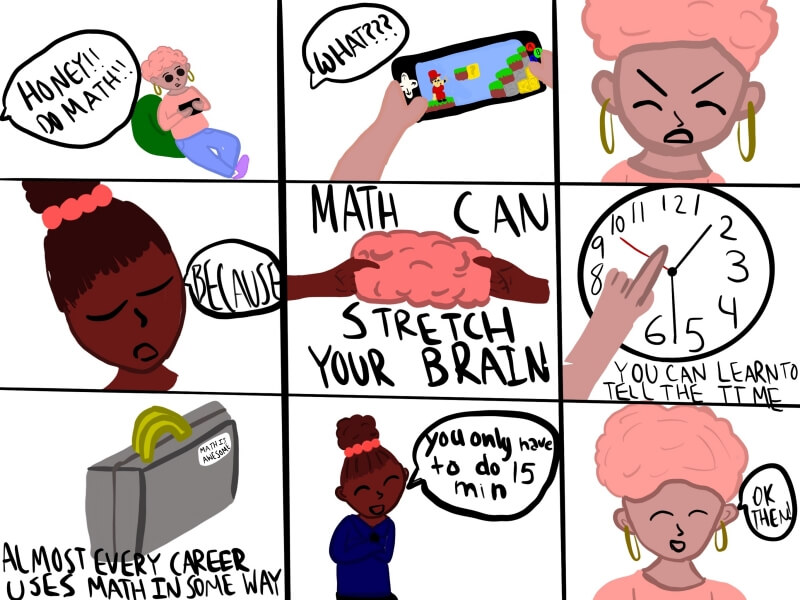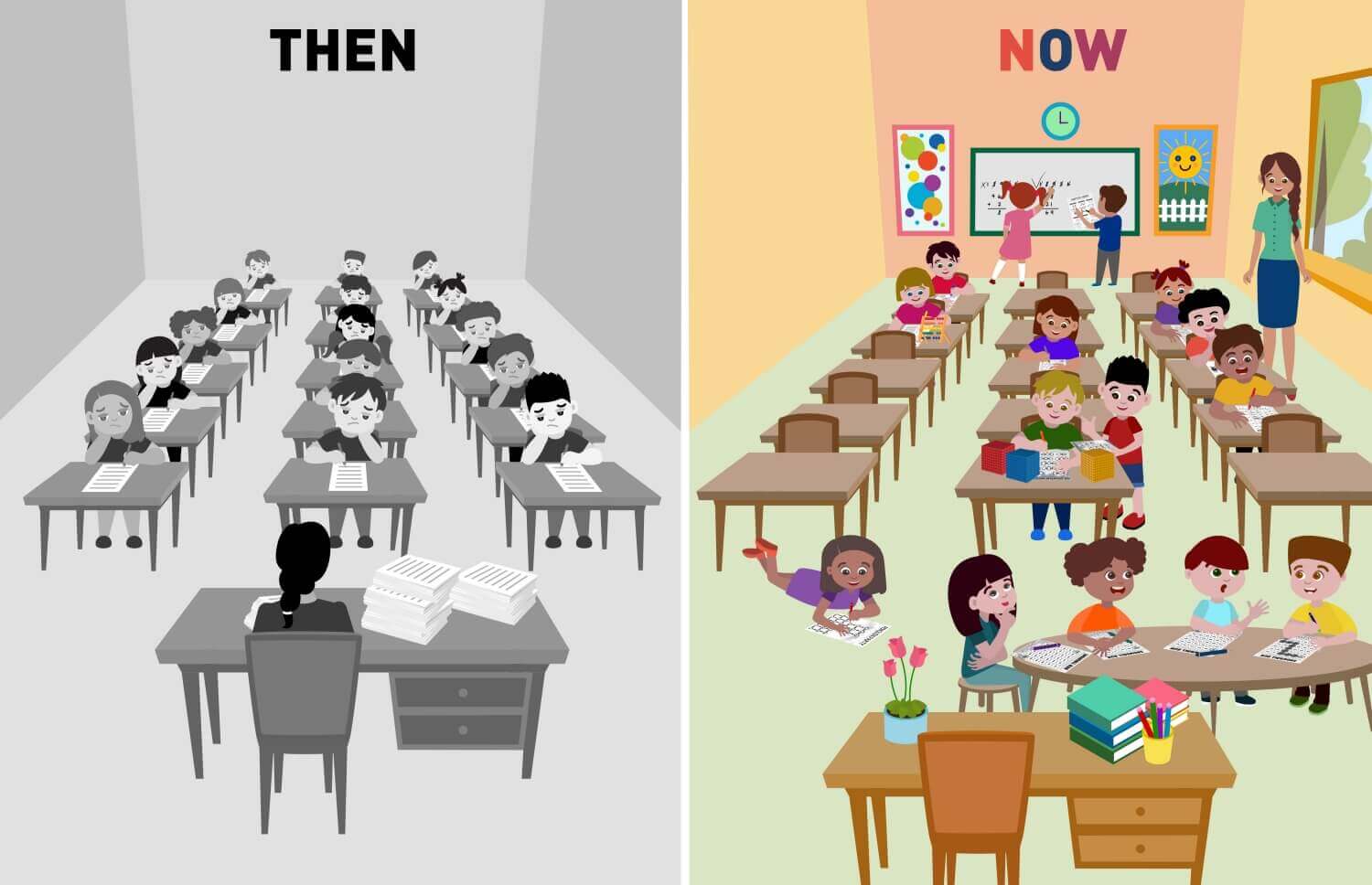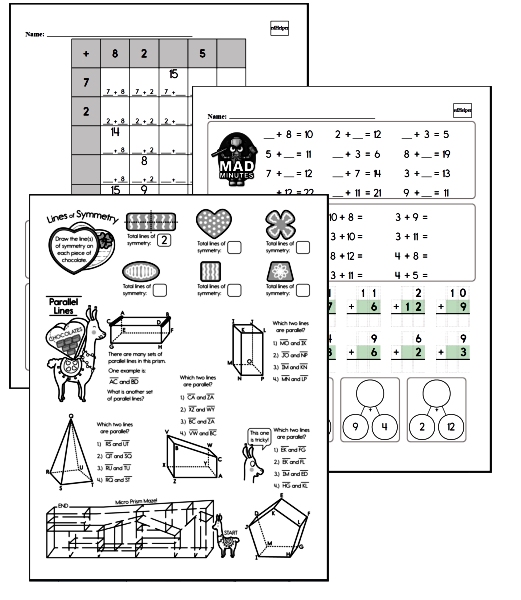Teacher Tactics to help with Math Assessment
By: edHelper Staff
Updated: Apr 17, 2023

A lot of pressure comes with math assessments. There's plenty of pressure on the students, but there is pressure on teachers too. Weeks, and even months, of planning and preparation, are needed to help students do well. Plenty of prep is required to make sure the test-taking process goes smoothly too.
Fortunately, you aren't at the whim of the math gods. There are things you can do to set each student and your entire classroom up for success.
Math Assessments and Hybrid AI Learning Workbooks and Games

Create a Pacing Guide According to Required Standards
Math comes with a lot of standards to follow. Most programs have units and related activities that walk you through each step of the learning process.
That's really helpful when it comes to tackling new math units. It can make sure teachers are teaching the same thing at the same time too, but units aren't so good at cycling back to previous concepts. Some may provide review questions or activities, but your students have unique needs. The suggestions and activities provided may not be right for your class.
Create your own pacing guide that allows you to go back to important math concepts in the midst of new units. Look ahead to the assessment and see which skills students need to have. Then, include time during instruction for students to cycle back to those challenging concepts and practice them. That way, they will be fresh in your students' minds at test time, even if you finished an important unit months ago.
Know Your Students
It's a good idea to review challenging concepts so that they are fresh in your students' minds, but you should also know your students.
Chances are, you're already doing a lot of benchmarking. What you're already doing may uncover gaps in knowledge among your students, but don't be afraid to dig a little deeper. Have students complete a worksheet on a previous concept or meet with students individually to assess their understanding of important concepts that will be on the assessment.
Based on your findings, you can provide students with differentiated instruction so everyone gets the practice they need. That might mean giving students different homework sheets according to the skills they need to practice or assigning specific centers to students who need more practice in a certain area. That way, students have a chance to practice the concepts they find most challenging without having to practice the skills they have already mastered.
Expose Students to a Variety of Question Types
Sometimes it isn't the subject matter or skills themselves that trip up students. Instead, it's the way that they are presented that causes trouble.
Not only should you give students plenty of practice, but you should also vary what that practice looks like.
You might practice old concepts together as a class, break students apart into small groups, have students work in pairs, or ask them to complete a worksheet alone as homework.
It's even more important to ensure that a variety of question types are included in the practice. They might include multiple choice as well as fill-in-the-blank and show your work. Questions might include solving a simple equation or figuring out how to solve a problem presented in a short story.
The more angles they use to approach solving problems, the more confident they will be when test time rolls around.
Give Students the Opportunity to Get Used to the Testing Environment
It's estimated that 40% to 60% of students are negatively affected by test anxiety. Some of that anxiety arises from the atmosphere where they are taking the test.
Can your students get up and sharpen a pencil? Can they go to the bathroom? Will desks be separated and scattered around the room?
Not knowing what to expect on test day, trying to concentrate in an environment that's different from what they're used to, and trying to learn new expectations can increase anxiety and create poor performance among students.
Don't change anything that doesn't need to be changed in the classroom. For example, there's no need to separate desks if students use privacy shields. Go over any expectations that will be different ahead of the test and give students a chance to ask questions.
It's also a good idea to do a test run. Set up the room exactly how it will be during the test. Review the rules and give students a demo test (more on that in a minute). That way, when they walk into the room on assessment day, it looks and feels exactly how they expected.
Let Students Practice on a Demo Test
Most testing services provide demo tests that are similar to the test that students will be taking. Not only is it a good way to see what students need more practice on, but it also familiarizes them with the format of the test and the types of questions they will see.
The other benefit of a demo test is the fact that you can review the answers together. Let students rework problems that they got wrong and talk about different methods used to get the right answer. Not only will it make the actual test seem less scary because they've already worked on one just like it, but it also gives your class the feeling that you're all in this together.
Take the Pressure Off
Assessments are important. They determine how your students compare to other students in the district, the state, or even across the country. They can determine funding, and they can determine a child's instruction moving forward.
But honestly, at the end of the day, it's just a test. It feels hugely important in the moment, but after a few weeks, it feels like ancient history.
You can help your students a lot by highlighting this fact ahead of the test. Help them develop a mindset that strikes a balance between encouraging them to do their best on the test, but also let them know that any score they get is acceptable.
Helping your students feel less anxious makes them feel better, and it can help with classroom management, but it can also positively affect test scores.
One study showed that students who feel too much stress score lower on standardized tests. By making the test feel like less of a big deal, your students are able to demonstrate their knowledge of important concepts more effectively.
Talk About Test-Taking Strategies
Assessments don't always measure student knowledge. That's because taking an assessment isn't just about knowing the math.
As mentioned above, stress can affect test scores, which means an assessment could just end up measuring student stress levels. It could also end up measuring their comprehension under pressure or even how well they can mark an answer.
To give students the best shot at demonstrating their knowledge, you need to help them with test-taking strategies that include things like:
- Underline important words
- Read test items twice before choosing an answer
- Work through complex problems twice
- Eliminate answers that are wrong before picking the right one
- Rephrase questions so they are easier to understand
- Only fill in the bubble completely when you're sure of the answer
Offer an Incentive
A lot of preparation goes into taking an important test. Then, students have to focus for long stretches of time during the test. After they turn it in, they might be worried about how well they did. That's a lot for young minds to wrangle with! Many students find tackling an assessment a lot easier when they know they have something to look forward to when it's done.
So plan something fun to do! Some ideas include:
- Extra recess
- Pizza party
- Assembly
- Game time with other classrooms
- Movie day
- Pick a prize from a prize box
Not only should you celebrate with your students as soon as the test is done, but they should also know the celebration is coming before test day even arrives. When students have something to look forward to, many will find it easier to concentrate. Not to mention, reminding them of the upcoming celebration is a great way to get them back on task quickly.
It's important that everyone gets to celebrate. All students should get to enjoy the incentive for finishing the exam. Their reward shouldn't have anything to do with their score.



